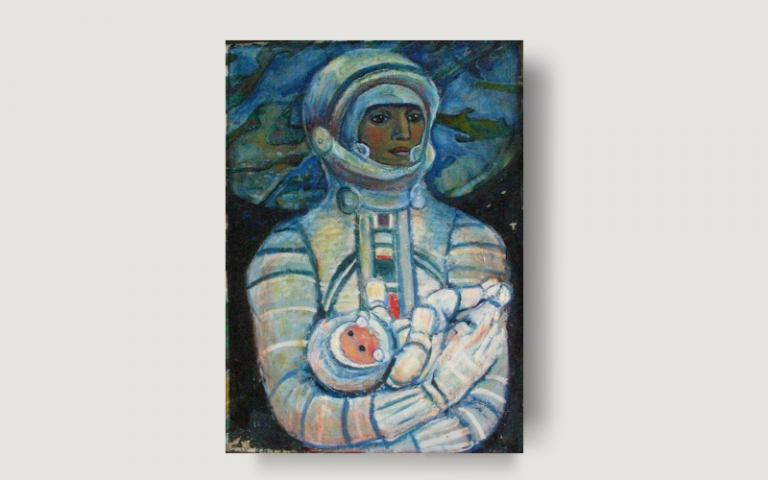Cosmic Commonism, Cosmic Communism, Cosmic Colonialism?
20 January 2022, 6:30 pm–7:30 pm

An online panel discussion with Madina Tlostanova and Ewa Majewska co-organised by the UCL SSEES FRINGE Centre, PPV & Mimosa House
This event is free.
Event Information
Open to
- All
Availability
- Yes
Cost
- Free
Organiser
-
SSEES
What heritages, aesthetics and styles of radical subversion can we find in the interstices of the socialist and post-socialist worlds? Do the cosmic promises and fantasies of state socialism - and their esoteric interpretations and appropriations by artists like Janina Kraupe-Świderska and Galina Konopatskaya - hold any kind of radical potential for a subversive new politics and new aesthetics today? Do the vernacular mutations of Marxism-Leninism (and other high modern ideologies) which settled into shape in local contexts during the 19th-21st centuries hold any promise as indigenous ideologies of resistance against late neoliberal capitalist heteropatriarchal hegemony? Or does the shape and style of a non-fascist, non-patriarchal world have to coalesce from a different kind of material altogether?
About Cosmic Mothers
Artists’ works in the show draw on cosmologies, science-fiction, esoteric practices and ancestral systems of knowledge and imagination that go beyond an officially approved scientific discourse. The exhibition title is inspired by the 1971 enigmatic painting ‘Cosmic Mother’ by the USSR artist Galina Konopatskaya, which echoes Orthodox icons of Madonna and Child, instead depicted here in astronaut suits and floating in outer space. What would happen if we chose to look at the image of Cosmic Mother through the empowering prism of cyberfeminism and queer science-fiction?
About the Guest Speakers
Madina Tlostanova
Tlostanova is a decolonial thinker and fiction writer, professor of postcolonial feminisms at Linköping University (Sweden). Her research interests include decolonial thought, particularly in its aesthetic, existential and epistemic manifestations, feminisms of the Global South, postsocialist human condition, fiction and art, critical future inquiries and critical interventions into complexity, crisis, and change. Her most recent books include What Does it Mean to be Post-Soviet? Decolonial Art from the Ruins of the Soviet Empire (Duke University Press, 2018), A new Political Imagination, Making the Case (co-authored with Tony Fry, Routledge, 2020), Decoloniality of Knowledge, Being and Sensing (Centre of Contemporary Culture Tselinny, Kazakhstan, 2020) and the co-edited volume Postcolonial and Postsocialist Dialogues. Intersections, Opacities, Challenges in Feminist Theorizing and Practice (co-edited with Redi Koobak and Suruchi Thapar-Björkert, Routledge, 2021). Currently she is working on an experimental mixed media book “Fictions of Unsettlement”.
Ewa Majewska
Dr hab. Ewa Majewska – is a feminist philosopher and activist, living in Warsaw. She taught at the University of Warsaw and the Jagiellonian University in Kraków, Poland, she was also a visiting scholar at the University of California, Berkeley; ICI Berlin and IWM in Vienna. She published one book in English, Feminist Antifascism. Counterpublics of the Common (Verso, 2021) and four books in Polish, as well as 50 articles and essays, in journals, magazines and collected volumes, including: e-flux, Signs, Third Text, Journal of Utopian Studies and Jacobin. Her current research is in Hegel's philosophy, focusing on the dialectics and the weak; feminist critical theory and antifascist cultures. She lectures at the UDK Berlin.
 Close
Close

